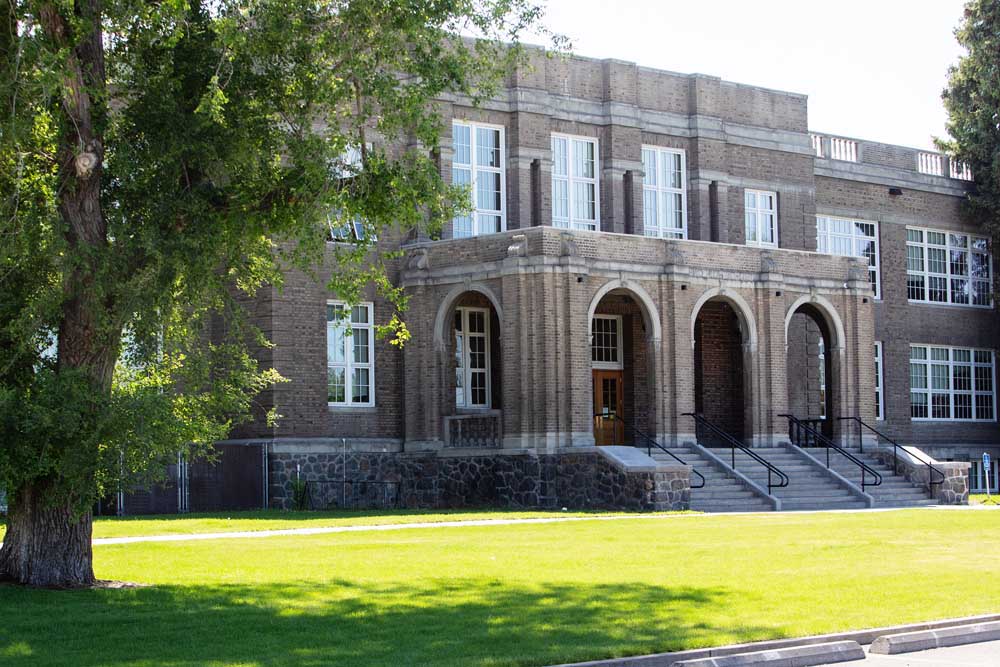When lawyers steal, clients’ safety net is thin
Published 5:00 am Friday, September 20, 2013
COLUMBIA, S.C. — Rogue lawyer Richard J. Breibart — of Lexington, S.C., last month pleaded guilty to swindling 13 clients out of $2.5 million but possibly cheated more than 100 clients out of millions more.
In Florence, S.C., the late attorney John Schurlknight cheated numerous clients out of millions so he could gamble, lawsuits say, and he and his still-living partner, William R. Rivers III, allegedly concocted a long-running scheme that stole millions from clients, according to a recent federal grand jury indictment.
The cases of Breibart, Schurlknight and Rivers have some lawyers around South Carolina asking if the 11,485 members of the South Carolina Bar — the state’s lawyers’ association — are doing everything they can to compensate innocent clients in the event their lawyer turns out to be a master thief.
“One lawyer can now blow a massive hole through a number of people’s life savings — it’s just awful,” said John Freeman, a national authority on legal ethics and law professor emeritus at the University of South Carolina School of Law.
“You have to do something,” said Florence lawyer Rod Jernigan, president of the 1,200-member S.C. Association for Justice, the state trial lawyers’ association.
The Schurlknight-Rivers allegations have hit the S.C. legal community “like a ton of bricks,” Jernigan said. “You just couldn’t imagine they would do something like that.”
Currently, the Bar’s reimbursement fund, called the Lawyer’s Fund for Client Protection, has a limit of $200,000 in total claims per lawyer it will pay out. That means that if one lawyer is found to have stolen millions collectively from numerous clients, the most the Bar will compensate those clients is a collective $200,000. The maximum claim the fund will pay to any one claimant is $40,000.
In the case of Breibart, the Bar has settled 98 claims with former Breibart clients for about 10 cents on the dollar, according to Bar officials. The entire $200,000 has been spent, and the Bar will not compensate others swindled by Breibart for any other losses.
The Schurlknight-Rivers cases have not yet been settled, and the Bar doesn’t release information on pending fund claims.
Doctors buy malpractice insurance. South Carolina lawyers can, although lawyers’ malpractice insurance likely wouldn’t cover overtly criminal acts.
That shows how important the compensation fund is in an industry that self-polices and has limited oversight.
The compensation fund currently contains about $1.4 million.
Bar members pay $20 annually each into the fund — double what they paid some years ago when the assessment was $10. The fee is set by the State Supreme Court on the Bar’s recommendation.
S.C. Supreme Court Chief Justice Jean Toal — declined to comment on lawyers’ contributions to the fund, saying that Breibart’s case still could come before her court. Breibart, under suspension as a lawyer, is awaiting federal sentencing and still could be disbarred by the Supreme Court.
The S.C. Bar’s president, Charleston attorney Alice Paylor, declined to take a position on specific steps the Bar might take to better protect clients. But Paylor did say she wants to talk with Bar officials who oversee the compensation fund to learn about its resources.
“We really have to get input from them,” she said. “Mainly, I want to say how sorry I am that these people have been victimized by lawyers.”
Cases where South Carolina lawyers prey on clients and steal millions are a relatively new phenomenon, she said.
“I don’t think anyone ever dreamed of anyone losing as much as some of these people have lost,” Paylor said. The current fund does “help people get some money back when they would otherwise get none,” she said.
Ordinarily, a client could file a lawsuit against a lawyer to recoup lost money, Paylor said. “But if he is stealing money from his clients, I guess he doesn’t have that much money there.”
In Breibart’s case, federal prosecutors in August said his only asset after stealing millions from clients was a small interest in a used Mercedes. Prosecutors refused to say what he did with the money.
In Schurlknight’s case, after he committed suicide, his clients learned that he had gambled away their money and, not only that, had taken out a life insurance policy that paid money to his bookie to reimburse the bookie for his gambling losses, according to lawsuits on file in the Florence County Court of Common Pleas.
Jernigan, the head of the trial lawyers group, suggested that while it might be difficult to give full compensation from the Bar fund, state lawyers should increase their annual payment from the current $20 to better help victims.
“If we have to increase it to $50 a year—what’s $50? I’ve already spent $30 buying brownies at Freeman’s bakery for this weekend’s Carolina game. What’s another $30 going to the clients compensation fund?” Jernigan said.
Although many beginning lawyers scramble to make a living, the typical lawyer who’s been practicing some years probably makes $100,000 to $150,000, Jernigan estimated. Perhaps lawyers with less than five years’ experience could keep on paying $20, he said.
Lexington attorney Jack Duncan, president of the 425-member S.C. Association of Criminal Defense Lawyers, said lawyers should consider paying more into the fund, as well as increasing the total payout amount per fraudulent lawyer to better compensate for bigger crooks like Breibart.
“The time has come to do more to protect clients from people like Breibart,” Duncan said. “Unfortunately, large thefts by lawyers are increasing around the country. While South Carolina’s experience may be with small stolen sums, there’s no reason to think we have an exceptional Bar.”
Duncan said he represented two of Breibart’s ex-clients who sought and got money from the Bar’s client compensation fund.
One client had paid Breibart a fee of $162,000, for which Breibart did no work, and was given $4,750 in compensation by the Bar fund, Duncan said. Breibart took $25,000 from another client, whom the fund paid $800 in compensation, Duncan said.
Duncan recently also represented a defendant in a double-murder case whose family paid Breibart $50,000 without Breibart doing any work, he said. That defendant’s family did not seek or receive compensation from the fund, he said.
Midlands lawyers did help Breibart’s victims in non-financial ways, Duncan said. The Association of S.C. Criminal Defense Lawyers and the S.C. Association for Justice lawyers have been representing about 40 former Breibart clients on a pro bono basis or for a sharply reduced indigent fee.
The current $200,000 compensation cap for any one lawyer “just doesn’t account for the most dangerous outliers who are out there,” said University of South Carolina’s Freeman.
Freeman proposed a $100-per-lawyer annual contribution to the fund. “I don’t know of any reputable lawyer who wouldn’t be glad to toss an extra $100 in the hat. And it would be a tax-deductible expense.”
Fortunately, he said, the large majority of lawyers are reputable.
Desa Ballard, a Columbia lawyer who represents a former Breibart client who has filed suit to recover money he allegedly took, said she would “welcome an increase in assessment against lawyers to make the (compensation) fund more properly represent actual losses in cases like these.”
Ballard, who also teaches an advanced legal ethics course at USC’s law school, agreed with Freeman that most lawyers are reputable, adding, “It’s very rare for lawyers nowadays to steal clients’ money from trust accounts.”
Under state Supreme Court rules adopted in 1997, she said, lawyers have to keep monthly records of incoming and outgoing money in trust accounts.
That has heightened awareness by lawyers of their ongoing financial situation, she said. And it has put them on notice that their monthly reports may be scrutinized by court officials.
Freeman also said that lawyers ought to be required to carry malpractice insurance and that there’s no requirement that a lawyer disclose the fact that he or she doesn’t have malpractice insurance to a client. While malpractice insurance doesn’t cover overtly criminal acts, but it might expose lawyers in the same firm to civil lawsuits if they should have known about thefts from office accounts.
Non-disclosure “is as wrong as it can be,” said Freeman, adding, “We could easily do at relatively low cost to all of us a far better job of protecting the public than we do.”
———
IN OTHER STATES
Many other states’ Bar associations have client compensation funds to reimburse clients who have been cheated out of money by dishonest lawyers. All claims must be investigated by a compensation board before payment is made.
Here are a few:
North Carolina’s Client Security Fund pays up to $100,000 per claim. Has no maximum-per-lawyer cap.
Virginia’s Client Protection fund pays up to $50,000 per claim. Has no maximum-per-lawyer cap.
Georgia’s Client Security Fund pays up to $25,000 per claim. There’s a per-lawyer claim cap of 10 percent of the total fund balance. Currently, the fund has about $2.4 million in it, so it will pay a maximum of $240,000 to all clients of a dishonest Georgia lawyer at this time.






